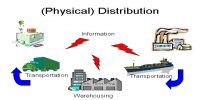Feasibility Analysis Role of Entrepreneurs:
Feasibility analysis can be used in many ways but primarily focus on proposed business ventures. The product offering idea must be technically feasible, that is it should be possible with the available technology to convert the idea into a reality. A feasibility study serves “as a filter, screening out ideas that lack potential for building a successful business, before an entrepreneur commits the necessary resources to building a business plan. And this should be possible at a cost that can be covered by the price it will fetch; in other words, the idea must be economically feasible too.
The project cost should be within the resources available and the resource providers should be reasonably sure of an appropriate return on (profit) and return of (safety and liquidity) of their investments. That is, the idea must be financially viable as well. There should be enough sales in the immediate and the prospect of growth in the foreseeable future; there should be adequate assurance on the commercial viability of the chosen product offering. Now a day, it is also important to be sure that there aren’t any environmental and other legal restrictions/necessity of prior approvals for setting up the business.
A feasibility analysis is not a business plan. The separate roles of the feasibility study and the business plan are frequently misunderstood. The feasibility study provides an investigating function. Clearly the chosen product offering must be feasible from the diverse perspectives.
Below are other reasons to conduct a feasibility analysis:
Gives focus to the project and outline alternatives.
- Narrows business alternatives
- Identifies new opportunities through the investigative process.
- Provides quality information for decision making.
- Helps in securing funding from lending institutions and other monetary sources.
- Helps to attract equity investment.















